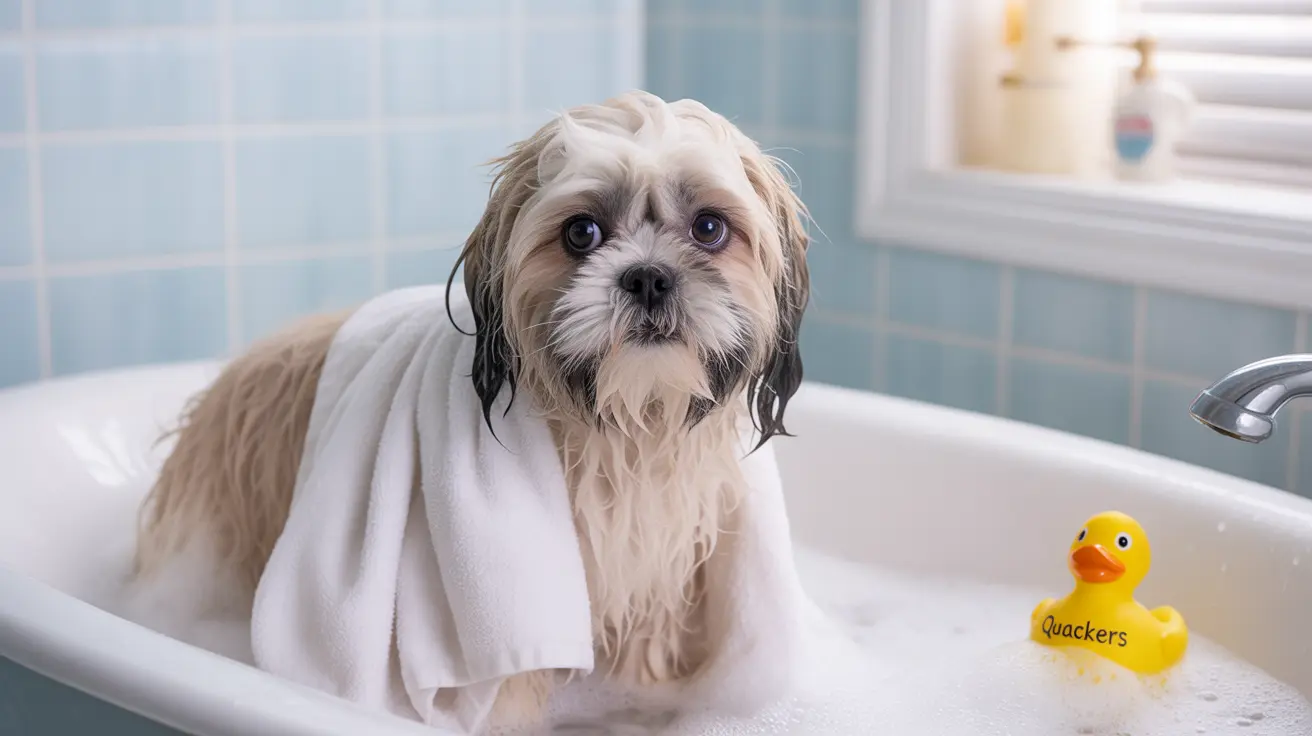If you've ever wondered why your dog still smells unpleasant even after a thorough bath, you're not alone. This frustrating issue affects many pet owners and can signal various underlying causes ranging from simple grooming oversights to medical conditions requiring veterinary attention.
Understanding the science behind dog odors and identifying the root causes of persistent smells after bathing is crucial for maintaining your pet's health and hygiene. Let's explore why this happens and what you can do about it.
The Science Behind Wet Dog Smell
The characteristic "wet dog smell" occurs when water interacts with naturally occurring microorganisms on your dog's skin and fur. These bacteria and yeasts release volatile organic compounds (VOCs) when they come in contact with water, creating that distinct odor we all recognize.
While some level of post-bath smell is normal and temporary, persistent strong odors might indicate other issues that need attention.
Common Medical Causes of Persistent Dog Odor
Skin Infections and Inflammation
Bacterial or yeast infections can cause ongoing odor issues that persist even after bathing. Dogs with skin folds are particularly susceptible to these problems, as moisture and bacteria can become trapped in these areas.
Ear Problems
Ear infections often create a yeast-like or musty smell that can be mistaken for general body odor. Dogs with floppy ears are especially prone to these issues.
Anal Gland Issues
If your dog has a particularly fishy smell after bathing, it might be related to anal gland problems. These small glands can become impacted or infected, causing persistent odors.
Grooming and Hygiene Solutions
Proper Bathing Technique
Using the right technique when bathing your dog is crucial for effective odor control:
- Use dog-specific shampoo
- Rinse thoroughly to remove all soap residue
- Pay special attention to skin folds and other problem areas
- Ensure complete drying after the bath
Regular Maintenance
Establish a regular grooming routine that includes:
- Brushing 2-3 times per week
- Cleaning ears regularly
- Checking and cleaning skin folds daily in prone breeds
- Professional grooming as needed for your dog's coat type
When to Seek Veterinary Care
If your dog continues to smell bad despite proper bathing and grooming, it's time to consult your veterinarian, especially if you notice:
- Skin changes or irritation
- Excessive scratching or licking
- Changes in behavior or appetite
- New or worsening odors
Frequently Asked Questions
Why does my dog still smell bad even after a thorough bath?
Your dog might still smell bad after bathing due to underlying issues such as skin infections, ear problems, or anal gland issues. Incomplete drying or improper bathing technique can also contribute to persistent odors.
How can skin infections or ear infections cause persistent odor in dogs?
Bacterial and yeast infections create distinct odors as these microorganisms multiply. These smells can persist even after bathing because the infection remains active beneath the surface of the skin or within the ear canal.
Could my dog's anal gland issues be making them stink after bathing?
Yes, anal gland problems often cause a distinct fishy odor that won't go away with bathing. If the glands are impacted or infected, they need to be expressed or treated by a veterinary professional.
What grooming and drying methods help prevent the "wet dog smell" from lingering?
Thorough drying with clean towels or a pet-safe dryer, complete rinsing of all shampoo, and regular brushing can help prevent lingering wet dog smell. Using high-quality, pet-specific products also makes a difference.
When should I see a vet about my dog's stubborn bad odor despite regular baths?
Consult a veterinarian if the odor persists despite proper grooming, if you notice skin changes, if your dog shows signs of discomfort, or if the smell is particularly strong or unusual.
Conclusion
While some level of dog odor is normal, persistent bad smells after bathing often indicate an underlying issue that needs attention. By understanding the potential causes and maintaining proper grooming practices, you can better manage your dog's hygiene and know when to seek professional help.






